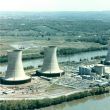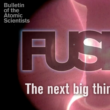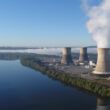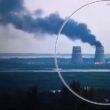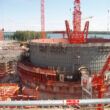Partnering with the public for better preparedness
By Manpreet Sethi, May 18, 2016
Several readers commenting on this roundtable have expressed a negative view of nuclear power and seem to favor abolishing it. The three roundtable authors, meanwhile—even as they have highlighted the challenges involved in preparedness for a nuclear disaster—either argue in favor of nuclear power or decline to argue against it. What accounts for this difference of perspective between the lay reader and the so-called nuclear expert?
The readers' attitudes aren't unusual—many in the general public oppose nuclear power because they fear that an accident will exceed the scenarios envisioned during a reactor's design and also exceed human ability to handle the consequences. The three roundtable authors, meanwhile, are well aware of the challenges—technical, legal, regulatory, psychological, and so forth—that disaster preparedness and response entail. But even as the authors understand the need to enhance preparedness and response capabilities in every possible way, they see no need to eliminate nuclear energy.
Rather, they emphasize the importance of learning from past disasters, as I did in Round One. Or they advocate global harmonization of emergency procedures, as Augustin Simo has done. Or, like Sonja Schmid, they argue that staff at nuclear plants should have greater freedom to improvise and exercise creativity during an emergency.
I suspect that one factor accounting for the differences between lay perspectives and expert perspectives is simply knowledge. Many well-informed experts, of course, are among nuclear power's opponents. But it's also the case that many laypeople who oppose nuclear power are informed very poorly.
Part of the blame for this rests with nuclear establishments and, to borrow Simo's phrase, with the "secrecy inherent in nuclear establishments." The tendency toward secrecy can cause nuclear operators to treat nuclear technology as something beyond the ordinary person's capacity to understand. Many in the nuclear establishment have never made an effort to explain, for example, the phenomenon of radioactivity (a lot of which exists harmlessly in nature). They've never bothered—in some cases out of laziness or a lack of concern—to describe the improved safety features and enhanced operator training that minimize the risk of nuclear disasters. The public's unease with nuclear power, its feelings of distrust, are an outcome of inadequate communication.
At one time, human beings feared fire—until they learned how, with adequate precautions, fire could safely be harnessed to do enormous good. So nuclear establishments must shed their habits of secrecy and actually encourage the public to learn about nuclear safety features and preparedness for accidents. In that way, the public might overcome its fear of the unknown.
Not in a vacuum. Another mechanism that can foster confidence in disaster preparedness is a nation's nuclear regulatory system. In the wake of the Fukushima disaster, a great deal of attention was devoted to regulatory capture—a situation in which a regulatory body is dominated by the industry that it's meant to regulate—so countries operating nuclear reactors endeavored to make their regulatory organizations and processes as stringent and independent as possible. To be sure, faith in regulatory bodies is vital for proper reactor operations and emergency response systems. But faith in regulators doesn't exist in a vacuum—any more than regulators themselves exist in a vacuum. Public faith in regulation mirrors a society's overall perceptions about public integrity, honesty, and safety culture. In a country with a lax safety culture in transportation, for example, people's attitudes toward nuclear operations can easily be negative too.
But there's a silver lining—nuclear power is to some extent self-regulating. Nuclear technology is quite unforgiving, and a local nuclear incident can quickly become a global sensation. This compels the nuclear industry worldwide to maintain high standards, subject itself to peer reviews and audits, and even try to harmonize operating procedures.
There can never be a perfect strategy for disaster prevention and preparedness; this must be conceded. So for nations that choose to include nuclear energy in their basket of electricity generation technologies, the correct approach is to make disaster prevention and preparedness as perfect as they can be. And crucially, preparedness and response arrangements must be communicated to the public in a transparent fashion.
Nuclear energy faces challenges that won't disappear just because the public becomes a partner is preparedness and response strategies. But involving the public must be part of the solution.
Topics: Nuclear Energy
Share: [addthis tool="addthis_inline_share_toolbox"]

